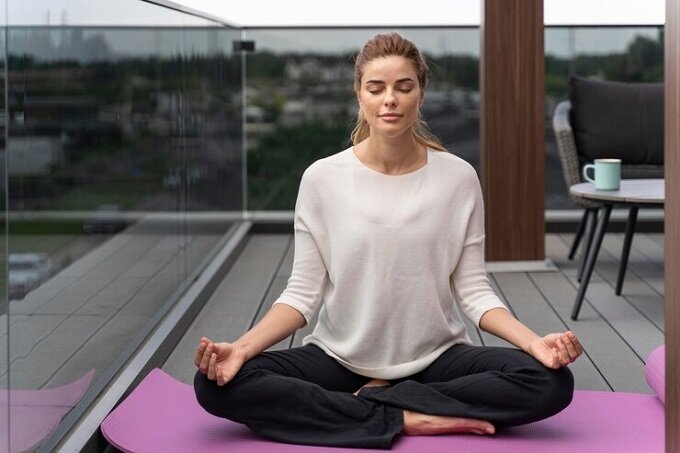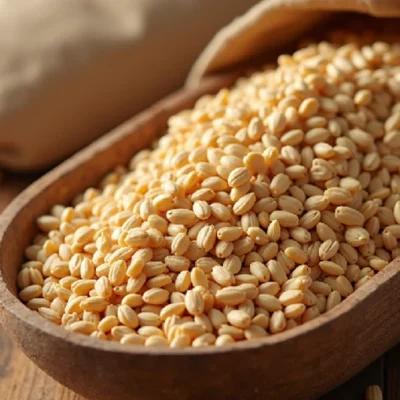
Benefits of Mindfulness Meditation for Stress Reduction
In today’s fast-paced, high-stress world, more and more people are turning to an ancient practice to find peace and balance: mindfulness meditation. This simple yet powerful technique has the potential to transform your relationship with stress and unlock a host of benefits for your physical, mental, and emotional well-being.
Benefits of Mindfulness meditation is a highly effective tool for reducing stress, improving mental health, and enhancing overall quality of life. By cultivating present-moment awareness and acceptance, mindfulness helps us break free from the cycle of stress and anxiety, leading to greater resilience, focus, and inner peace.
Key Takeaways
- Mindfulness meditation involves paying attention to the present moment with openness and non-judgment
- Regular mindfulness practice can lead to significant reductions in stress, anxiety, and depression
- Mindfulness meditation has been shown to have numerous physical health benefits, including reduced chronic pain and improved heart health
- Incorporating mindfulness into daily life can enhance focus, productivity, and interpersonal relationships
Understanding Mindfulness Meditation
At its core, mindfulness meditation is a mental training practice that involves focusing your attention on the present moment with an attitude of openness, curiosity, and acceptance. It has two main components:
- Attention: Bringing your awareness to your immediate experience, such as your breath, bodily sensations, thoughts, or emotions
- Acceptance: Observing your experience without judgment, resistance, or trying to change it
Mindfulness can be understood both as a state of being and as a formal practice. As a state, mindfulness is a quality of present-moment awareness that we can cultivate in any waking moment. As a practice, it typically involves setting aside dedicated time for formal meditation, such as sitting quietly and focusing on the breath.
The Science Behind Mindfulness Meditation
A growing body of research has documented the many ways in which mindfulness meditation can positively impact our physical, mental, and emotional health. Studies have shown that regular mindfulness practice can lead to:
- Changes in brain structure and function, including increased gray matter density and enhanced neural connectivity
- Reductions in markers of stress and inflammation, such as cortisol levels
- Improvements in immune function and overall physical health
- Decreased symptoms of anxiety, depression, and other mental health conditions
These findings suggest that mindfulness meditation is not just a subjective experience, but a practice with measurable effects on our physiology and well-being.
The Benefits of Mindfulness Meditation for Stress Reduction
Reduced Rumination and Improved Emotional Regulation
One of the key ways mindfulness helps reduce stress is by interrupting the cycle of negative, repetitive thoughts that can fuel anxiety and depression. When we get caught up in rumination, we tend to rehash past events or worry about future possibilities, leading to a downward spiral of stress and emotional reactivity.
Mindfulness meditation teaches us to observe our thoughts and emotions with a sense of distance and perspective, rather than getting swept away by them. By practicing non-judgmental awareness, we can learn to respond to stressful situations with greater clarity and equanimity, rather than reacting automatically out of fear or habit.
Stress Management and Relaxation
In addition to its effects on our mental and emotional state, mindfulness meditation is also a powerful tool for activating the body’s relaxation response. When we’re under stress, our sympathetic nervous system kicks into high gear, leading to increased heart rate, blood pressure, and muscle tension. Over time, chronic activation of the stress response can take a toll on our physical health.
Mindfulness meditation, on the other hand, has been shown to reduce physiological markers of stress like cortisol levels and blood pressure. By bringing our attention to the present moment and cultivating a sense of calm and ease, mindfulness helps shift the body into a state of relaxation and recovery.
Improved Mental Health
Research has consistently shown that mindfulness meditation can be an effective intervention for a range of mental health conditions, including anxiety, depression, and post-traumatic stress disorder (PTSD). Mindfulness-based therapies, such as Mindfulness-Based Stress Reduction (MBSR) and Mindfulness-Based Cognitive Therapy (MBCT), have been developed to harness the power of mindfulness in a clinical setting.
At the heart of these approaches is the idea that by cultivating present-moment awareness and self-compassion, we can develop greater emotional resilience and break free from patterns of negative thinking and behavior. Mindfulness meditation has been shown to enhance self-awareness, self-acceptance, and overall psychological well-being.
Physical Health Benefits
The benefits of mindfulness extend beyond the mind to the body as well. Research suggests that regular mindfulness practice can lead to improvements in a variety of physical health conditions, including:
- Chronic pain: Mindfulness meditation has been shown to reduce pain intensity and improve quality of life in people with conditions like low back pain, fibromyalgia, and arthritis
- Heart health: Studies have found that mindfulness training can lower blood pressure, improve cardiovascular function, and reduce the risk of heart disease
- Sleep: Mindfulness practices have been linked to better sleep quality and reduced symptoms of insomnia
- Digestive issues: Mindfulness-based interventions have shown promise for managing conditions like irritable bowel syndrome (IBS) and inflammatory bowel disease (IBD)
These findings highlight the holistic nature of mindfulness and its ability to promote healing and well-being throughout the mind-body system.
Enhanced Focus and Productivity
In addition to its stress-reducing effects, mindfulness meditation can also have a positive impact on cognitive performance and productivity. By training the mind to be more present and attentive, mindfulness can help us stay focused and engaged in the task at hand, even in the face of distractions or competing demands.
Research has shown that mindfulness meditation can improve working memory, cognitive flexibility, and executive functioning – skills that are essential for navigating complex problems and making sound decisions. Mindfulness has also been linked to increased creativity and “flow” states, where we become fully absorbed in an activity and perform at our best.
Cultivating Compassion and Interpersonal Skills
Finally, mindfulness meditation can have a profound impact on our relationships and interpersonal skills. By developing greater self-awareness and emotional intelligence, we become more attuned to our own needs and the needs of others. Mindfulness has been shown to increase empathy, compassion, and prosocial behavior, leading to more harmonious and fulfilling relationships.
Mindfulness can also help us communicate more effectively by allowing us to listen deeply and respond with greater clarity and understanding. By cultivating a more compassionate and accepting attitude towards ourselves and others, we can build stronger, more resilient connections and foster a greater sense of belonging and purpose.
Incorporating Mindfulness Meditation into Your Life
Different Mindfulness Practices and Techniques
There are many different ways to practice mindfulness meditation, each with its own unique benefits and applications. Some common techniques include:
- Sitting meditation: The most traditional form of mindfulness practice, sitting meditation involves focusing on the breath or another anchor while observing thoughts and sensations with non-judgmental awareness
- Body scan meditation: A practice that involves systematically bringing attention to different parts of the body, noticing any sensations or areas of tension and releasing them with the breath
- Mindful movement: Practices like yoga, tai chi, and qigong that combine mindfulness with gentle physical movement and stretching
- Loving-kindness meditation: A practice that involves cultivating feelings of love, compassion, and goodwill towards oneself and others
The key is to find a practice that resonates with you and fits your personal preferences and needs. Experiment with different techniques and see what works best for your lifestyle and temperament.
Establishing a Regular Mindfulness Routine
To reap the full benefits of mindfulness meditation, it’s important to establish a regular practice and make it a consistent part of your daily routine. Here are some tips for creating a sustainable mindfulness habit:
- Start small: Begin with just a few minutes of meditation each day and gradually build up to longer sessions as you become more comfortable with the practice
- Set aside dedicated time: Choose a specific time each day to practice mindfulness, such as first thing in the morning or before bed, and stick to it as much as possible
- Find a quiet space: Designate a peaceful spot in your home or office where you can practice without interruption or distraction
- Be patient and kind to yourself: Remember that mindfulness is a skill that takes time and practice to develop. Don’t judge yourself for getting distracted or having difficulty focusing – simply notice when your mind has wandered and gently bring your attention back to the present moment
With consistency and patience, mindfulness meditation can become a natural and nourishing part of your daily life.
Mindfulness in Daily Life
While formal meditation is an important part of a mindfulness practice, the ultimate goal is to bring the qualities of mindfulness into every aspect of our lives. This means cultivating present-moment awareness and acceptance in the midst of our daily activities and routines.
Some ways to integrate mindfulness into everyday life include:
- Mindful eating: Paying attention to the sensory experience of eating, savoring each bite and noticing when you feel full and satisfied
- Mindful communication: Listening deeply and speaking with intention, being fully present in your interactions with others
- Mindful movement: Bringing awareness to your body as you walk, stretch, or engage in physical activity
- Mindful work: Focusing on one task at a time, taking regular breaks to recharge, and approaching challenges with curiosity and openness
By infusing our daily lives with mindfulness, we can transform even the most mundane moments into opportunities for growth, connection, and inner peace.
Mindfulness Resources and Support
If you’re new to mindfulness meditation or looking to deepen your practice, there are many resources available to support you on your journey. These include:
- Qualified mindfulness teachers and programs: Look for experienced instructors or established programs like Mindfulness-Based Stress Reduction (MBSR) to guide you in your practice
- Online tools and apps: There are numerous websites, podcasts, and smartphone apps that offer guided meditations, teachings, and other mindfulness resources
- Mindfulness communities and retreats: Connecting with others who share your interest in mindfulness can provide motivation, accountability, and a sense of shared purpose. Consider joining a local meditation group or attending a mindfulness retreat for immersive practice and support
Remember, the most important resource is your own commitment to the practice and willingness to explore mindfulness with curiosity and openness.
Conclusion
Mindfulness meditation is a transformative practice with the power to reduce stress, improve mental and physical health, and enhance overall well-being. By cultivating present-moment awareness and acceptance, mindfulness helps us break free from the cycle of stress and anxiety and live with greater ease, clarity, and purpose.
Whether you’re new to meditation or a seasoned practitioner, incorporating mindfulness into your daily life can have profound benefits for your relationships, work, and inner life. With regular practice and a spirit of openness and curiosity, mindfulness can become a powerful ally on the path to greater peace, resilience, and fulfillment.
So why not give it a try? Start small, be patient with yourself, and trust in the transformative power of living in the present moment. With mindfulness as your guide, you may just discover a whole new way of being in the world – one breath at a time.






